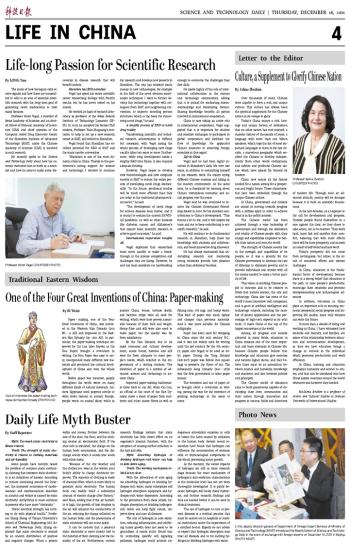
 |
| Professor Salma Ibrahim. (COURTESY PHOTO) |
Over thousands of years, Chinese were capable to form a rich and unique culture. This culture has always been the spiritual supplement for the Chinese nation in its voyage to glory.
Today's China enjoys a rich heritage and unique factors of civilization that no other nation has ever enjoyed; a majestic history of thousands of years, a language with more than one billion speakers, which tops the list of most important languages to learn in the last decade, a marvelous geography which enabled the Chinese to develop independently from other world civilizations, and infinite and profound Chinese values which have spread far beyond its borders.
China now enjoys all the factors needed for a nation aiming for a prosperous and bright future. These characteristics have been embodied through the unique Chinese culture.
In China, government and citizens are united in moving towards progress with a selfless spirit in order to achieve what is in the public interest.
The Chinese model has been achieved through a wise leadership of government and through the dedication and vitality of Chinese people with their energy and capabilities employed to benefit their nation and even the world.
The strength of Chinese society lies in the strength and capabilities of its people, so it was a priority for the Chinese government to decrease the rate of illiteracy, to eliminate poverty, and to provide individuals and society with all the means needed to enjoy a better quality of life.
This vision is enabling Chinese people to innovate and to be creative in fields that include science, the arts and technology. China also has some of the world's most innovative tech companies, and is good at artificial intelligence and technology outputs, including the number of patent applications and the percentage of high-tech exports in its total trade. It made China at the top of the largest economies in the world.
Among all progress and success achieved in many fields, education in China remains one of the most important and basic elements in Chinese life, because Chinese people believe that knowledge and education give societies and nations higher status, and they believe there must be an association between science and humanity, knowledge and character, and also between politics and principles.
The Chinese model of education aims to build generations capable of developing their lives, communities and their nation through innovation and progress in various fields and directions of modern life. Through such an advanced attitude, society will be stronger because it is built on scientific foundations.
In the last decades, as a response to the call for development and progress, Chinese people found themselves in a race against the time, so they chose to take action, not to be reactive. They work hard, learn fast and sacrifice their comfort, believing that with more efforts there will be more prosperity, and success is a result of self-belief and hard work.
Today's prosperity did not come from nothingness, but rather, is the result of concerted efforts and intense challenges.
In China, education is the fundamental factor of development, because there is a strong belief that education is the path to raise people's productivity, encourage their creativity and promote entrepreneurship and technological advances.
In addition, education in China plays an important role in securing economic prosperity, social progress and improving life quality, since only winners can write the future.
In more than a decade of living and working in China, I have witnessed how students and learners, and families, are aware of the relationship between education and socioeconomic development, as they see how education brings a change in outlook in the individual which promotes productivity and work efficiency.
In China, learning and education emphasize humanity and service to others, and that can be translated into how China assists countries around the world whenever and however they needed.
Ms.Salma Ibrahim is a professor of Arabic and Cultural Studies at Sichuan University of International Studies.







